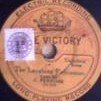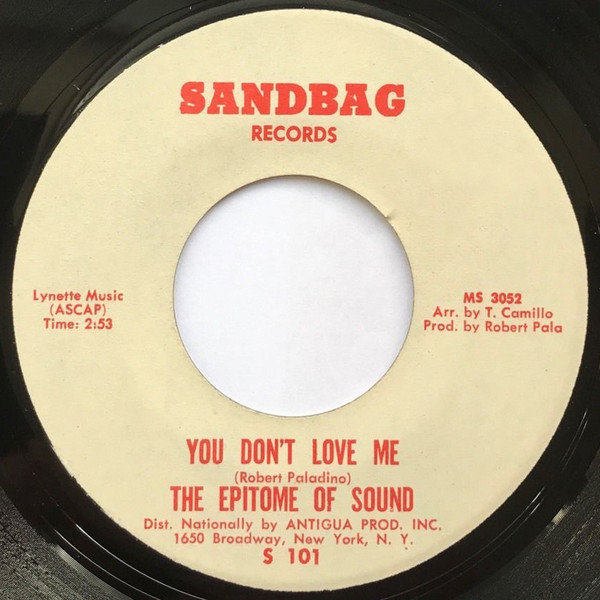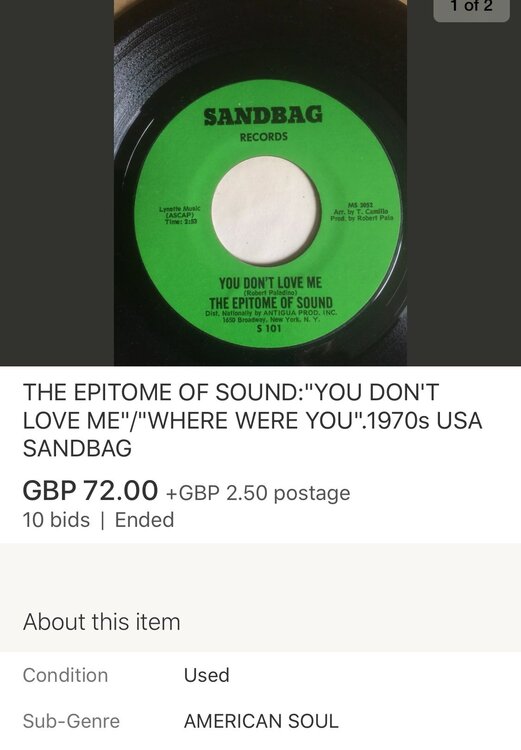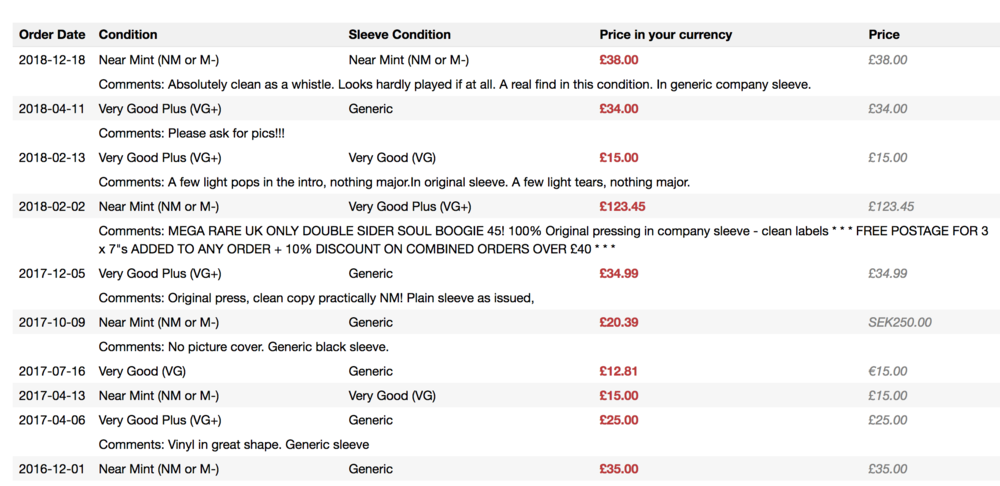- Replies 20
- Views 2.8k
- Created
- Last Reply
Most active in this topic
-
Dave Pinch 4 posts
-
Chalky 3 posts
-
Tomangoes 2 posts
-
Johndelve 2 posts
Most Popular Posts
-
But you can only take a sale at face value. A transaction took place whether you care to believe it or not. Two parties went through the whole process. They may have been two associates setting up
-
Always been shenanigans and values are inherently subjective aren’t they. They also fluctuate wildly at times. Assuming you had no idea: A. Check LOTS of sources - online, ask collectors etc
-
Glad you highlighted this, seen it so many times on discogs, go to popsike and see what they sold for on Ebay over time, nothing these days is reliable at record buying, just do your homework as best








I want to make one thing clear to begin with. I came on to Soul Source with the objective of discussing music, either sharing knowledge of such or obtaining more from others. Like many of us on here whose intentions are the same, we find ourselves getting caught up in other areas and regret the time spent discussing such afterwards. Originally I supplied some simple information to a member in another thread about what appeared to be a wildly overpriced record, which lead to a few people posting random unsubstantiated replies which subsequently ended up in me spend way too long producing what's below. I have decided to post it here as it may open up a few peoples minds regarding the subject.
The quote below is the one that prompted my response, in relation to an alleged Discogs sale of £123.45 NM, the previous NM just months earlier was £20.39. A VG+ quoted as "almost NM" in between the two entries sold for £34.99
I am staggered by the number of people on this site that make postings containing statements that they provide no evidence for.
The fact that an entry in the sales history appears and that fees may have been paid for such, is not evidence that a financial transaction for the sale of such, and at the stated amount, was ever conducted.
You have offered no evidence to prove that a financial transaction for it was actually conducted yet appear convinced one did despite the alleged price being insane. Let me explain the following scenarios which might lead you to question your opinion.
Going back in time, both myself and a number of other well respected sellers known to many on here, shared information on a habit conducted by several individuals in England back in the early 90's, who advertised items on paper mailing lists, some of which were at high value that they did not physically possess. If they did manage to generate a sale for an item advertised at well above market price, they then sought the record elsewhere at a far lower price, but having taken payment beforehand. I was one of the sellers who those original sellers were contacting for those titles they didn't actually have but I refused to trade with any of them despite having some of the items they needed. I had enough loyal customers to be able to sell the items to and at a fair price.
Upon them not being able to provide the item, if their buyer was outside the UK he was placed in a potential nightmare situation of trying to obtain a refund. Most foreign buyers would send cash in pre Paypal days.
Upon the arrival of the internet, these same individuals and many new opportunists, surfaced on sites that included Ebay, Gemm, and Discogs. Focusing on the opportunities available to a seller on Discogs using a scenario similar to the above, the seller risks a negative feedback if the sale doesn't complete but it's relatively easy to get it removed on Discogs. On the balance of probability, a genuine financial transaction for a record of £123, that was 6 times the price of the previous same stated condition copy that sold only a few months earlier, and three and a half times that of one in almost the same condition in between, to me seems about as remote as me ending this posting now. There are a number of sellers on Discogs who list items way in excess of the average market price as NM, then should a sale be generated they buy a much cheaper copy advertised at VG+ or less, from another seller in the hope they've under graded the item that may then satisfy their buyer.
So what else would motivate someone to advertise an item for a price that was way in excess of market value?
A bogus sale is created which is designed to shape the market value and is conducted with the use of multiple accounts. The seller could genuinely have several copies of an item but wants to increase the obtainable price by trying to fool idiots who actually deserve to mug themselves off, as to the value of the item. A copy is advertised at let's use the same figure mentioned earlier, £123.45 which is a rather random number in business terms especially for what is likely to be a used item. A bogus purchase of it is then made from another of the sellers multiple accounts. The seller pays the Discogs fee of £9.85. No financial transaction by way of a sale actually takes place, but the seller has now created a situation whereby even a second listing of the same item at £80 appears to be a bargain to a complete idiot who has already spotted the bogus transaction of £123 in the historic sales data and believes that to have been genuine. He or she thus purchases the item at £80 which has made the £9.85 fee paid on the bogus transaction worth the expense if the seller has multiple copies to conduct repeat sales of £80 with. I'm out of touch with Discogs fee refunds policy but a situation may even exist whereby both parties in the bogus transaction could agree not to complete the sale and whilst the selling fee is refunded, the actual £123 transaction may still remain in the historical sales data.
The fact that an entry in the sales history appears and that fees may have been paid for such, is not evidence that a financial transaction for the sale of such, and at the stated amount, was ever conducted.
Edited by Guest